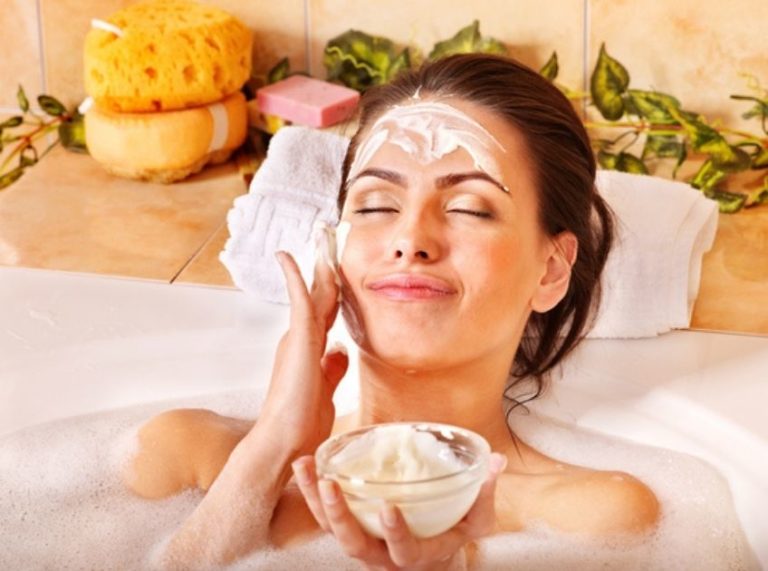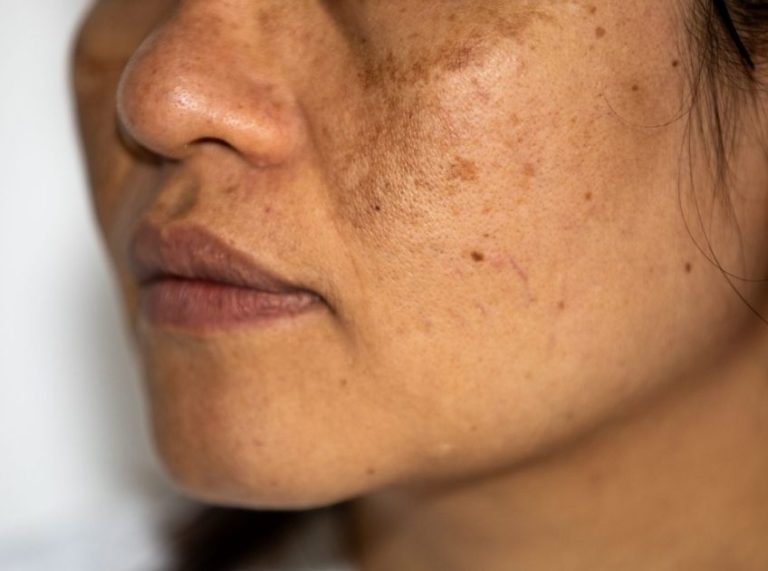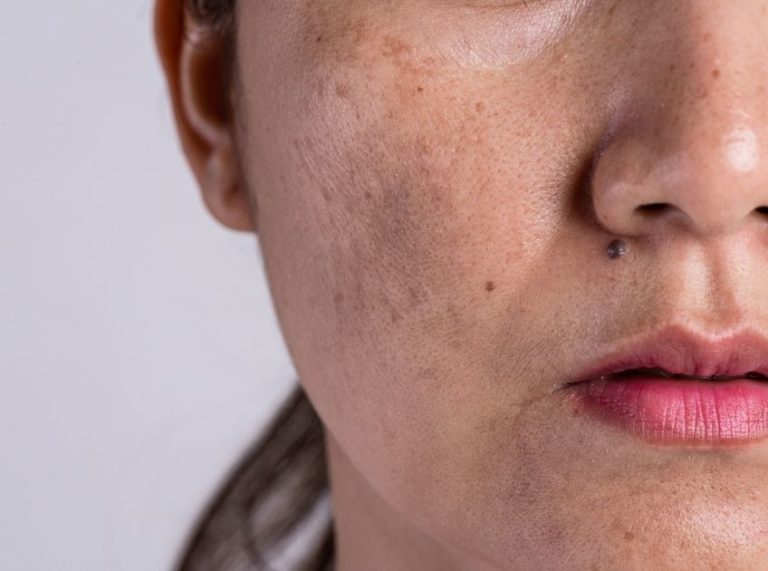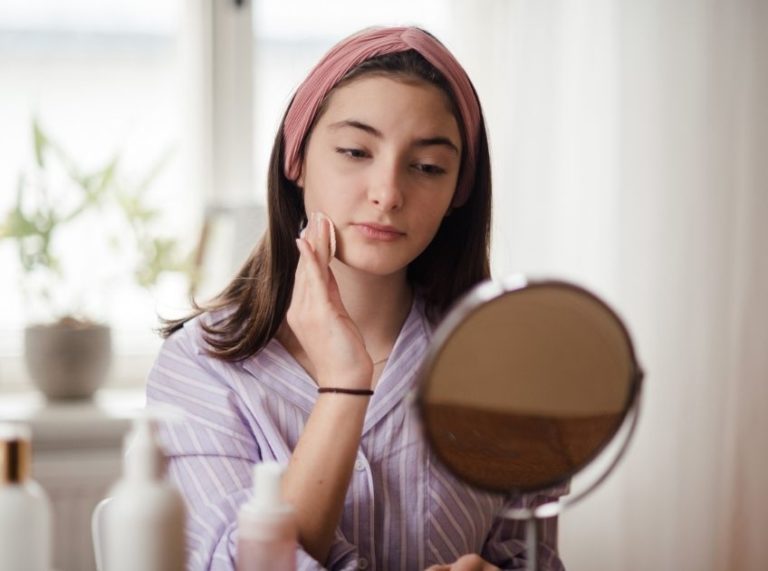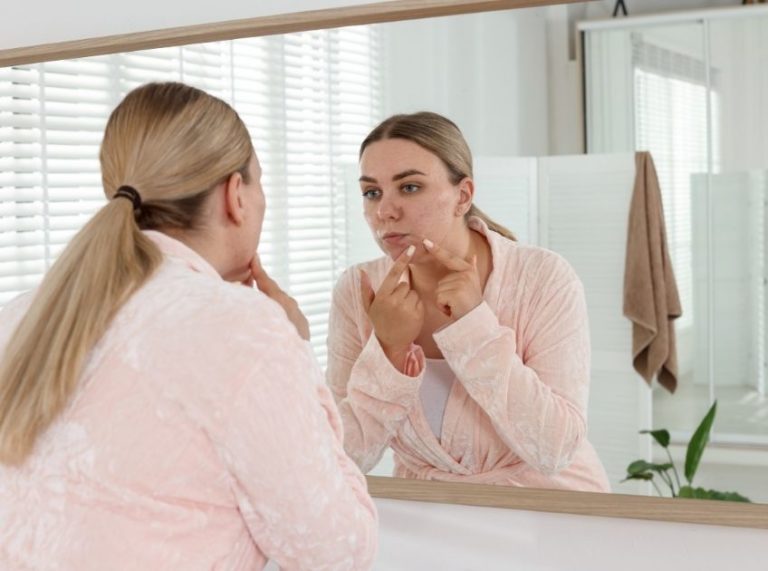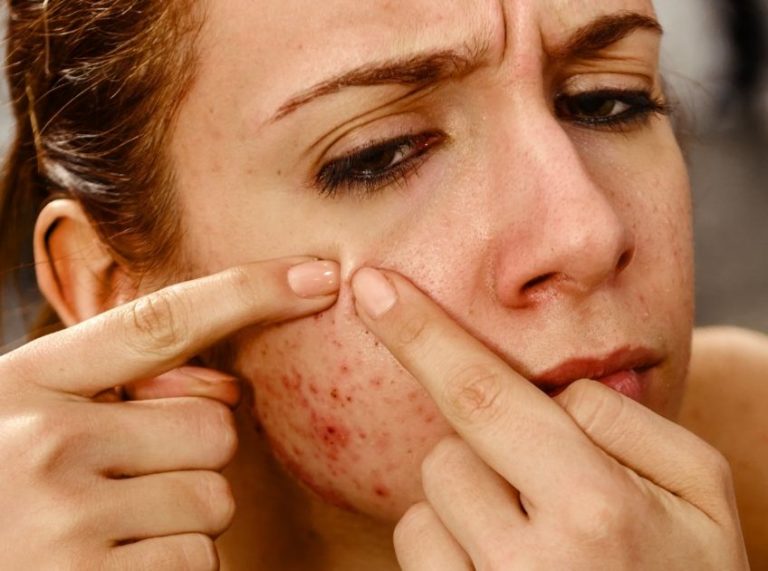
Important: This article is for informational purposes only. Please read our full disclaimer for more details.
Dark skin is radiant and unique, but it requires specific care to address its distinct needs. While melanin provides natural protection from UV rays, it also makes dark skin prone to hyperpigmentation, dryness, and uneven tone. Here’s a tailored guide to help you maintain glowing, healthy skin.
Article Contains
- Gentle Cleansing
- Stay Hydrated with a Good Moisturizer
- Don’t Skip Sunscreen
- Combat Hyperpigmentation with Brightening Agents
- Avoid Picking at Acne
- Exfoliate Regularly but Gently
- Hydration from Within
- Build a Night Care Routine
- Seek Professional Help for Persistent Issues
- Makeup for Darker Skin Tones
1. Gentle Cleansing
Cleansing is the first step to healthy skin, but harsh cleansers can strip natural oils.(1)
- Use a mild, non-comedogenic cleanser twice daily.
- Look for soothing ingredients like aloe vera or chamomile.
- Avoid products with alcohol or sulfates that can cause dryness.
2. Stay Hydrated with a Good Moisturizer
Dryness often leads to ashy or flaky skin, making moisturization essential.(2)
- Choose lightweight, non-greasy moisturizers with hyaluronic acid or shea butter.
- Apply immediately after cleansing to lock in moisture.
- Use a heavier cream in winter months to combat dryness.
3. Don’t Skip Sunscreen
It’s a myth that dark skin doesn’t need sun protection.(3)
- Apply broad-spectrum sunscreen with SPF 30+ daily.
- Choose sunscreens with a sheer or tinted finish to avoid white residue.
- Reapply every 2-3 hours if exposed to direct sunlight.
4. Combat Hyperpigmentation with Brightening Agents
Hyperpigmentation is common in dark skin but can be managed effectively.(4)
- Use products with Vitamin C, Alpha Arbutin, or Kojic Acid.
- These ingredients reduce dark spots and even out your skin tone.
- Always follow up with sunscreen after applying brightening agents.
5. Avoid Picking at Acne
Picking or popping pimples can leave scars and worsen dark spots.(5)
- Use treatments with salicylic acid or retinoids to control acne.
- Apply spot treatments containing benzoyl peroxide to reduce inflammation.
- Consider a dermatologist for severe breakouts.
6. Exfoliate Regularly but Gently
Exfoliation removes dead skin cells and promotes a smoother complexion.(6)
- Use chemical exfoliants like glycolic acid or lactic acid 1-2 times weekly.
- Avoid harsh scrubs that can irritate your skin.
- Be consistent but cautious to prevent over-exfoliation.
7. Hydration from Within
Good hydration starts on the inside.
- Drink at least 8 glasses of water daily to keep your skin plump.
- Include hydrating foods like cucumbers, oranges, and watermelon in your diet.
- Herbal teas and coconut water are great alternatives for hydration.
8. Build a Night Care Routine
Nighttime is when your skin repairs itself.(7)
- Use a serum with niacinamide, retinol, or peptides to address concerns.
- Follow with a nourishing night cream to lock in hydration.
- Apply targeted treatments for hyperpigmentation or uneven texture.
9. Seek Professional Help for Persistent Issues
Some skin concerns require professional care.(8)
- Consult a dermatologist for severe acne, dark spots, or uneven tone.
- Explore treatments like chemical peels, laser therapy, or prescription creams.
- Follow their advice for safe and effective solutions.
10. Makeup for Darker Skin Tones
Makeup should enhance your natural beauty.
- Choose foundations with warm undertones that match your skin.
- Avoid products with lightening agents or those that create an ashy finish.
- Look for brands that cater to a diverse range of skin tones.
Final Thoughts
Dark skin is beautiful, and with the right care, it can thrive. Consistency in your skincare routine, along with the use of effective products, is key. Celebrate your natural beauty and take pride in nourishing your melanin-rich skin.


